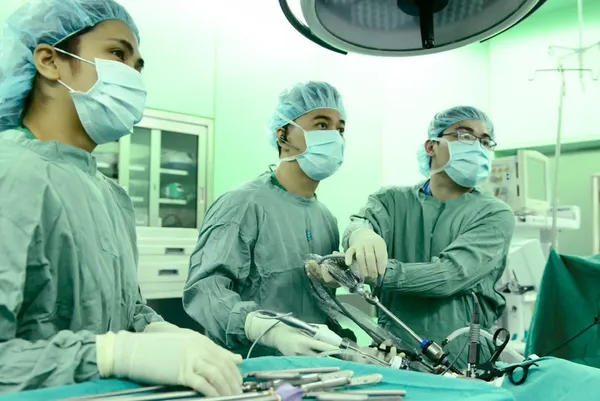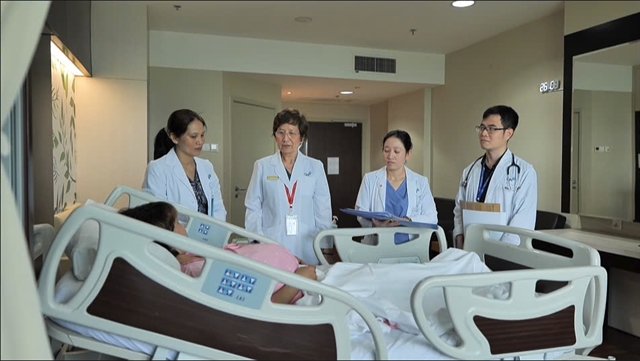 Society
Society

 |
| Doctors at the City International Hospital perform an emergency caesarean section on a 32-year-old woman with peripartum cardiomyopathy, saving both her and her baby. — Photo Courtesy of CIH |
HCM CITY — Doctors at the City International Hospital in HCM City have successfully performed an emergency caesarean section on a 32-year-old with peripartum cardiomyopathy, saving both mother and child.
The woman, who was 36 weeks pregnant, was admitted with shortness of breath, swollen legs, gestational diabetes, and high blood pressure.
This was her first pregnancy and achieved using through in-vitro fertilisation.
After doing an echocardiogram and blood tests, doctors diagnosed her as having peripartum cardiomyopathy.
Also known as postpartum cardiomyopathy, it is an uncommon form of heart failure.
Immediately, doctors in the obstetrics, cardiology, and anaesthesia and resuscitation departments decided to perform an emergency c-section to ensure the safety of the mother and baby.
The woman had earlier had her normal pregnancy check-ups at the hospital.
Dr Phạm Minh Khôi Nguyên, the main surgeon performing the operation, said this is a rare and high-risk condition, with a ratio of one in 9,000 pregnancies.
Peripartum cardiomyopathy could be fatal to both mother and baby if prompt measures are not taken, she said.
After the surgery, the two were carefully monitored by doctors in the resuscitation, cardiology and neonatal departments.
Five days later, their health improved enough to be discharged.
Peripartum cardiomyopathy is usually diagnosed in the last month of pregnancy and the weeks following delivery but can occur up to five months into the postpartum period.
It is diagnosed in individuals without prior heart disease.
Most patients can completely or partially recover, and so they need to comply with treatment and follow-up visits scheduled by the doctor.
Women who develop the condition are at high risk of developing the same problem during future pregnancies.
CIH’s doctors said pregnant women should strictly follow their check-up schedule, they said.— VNS